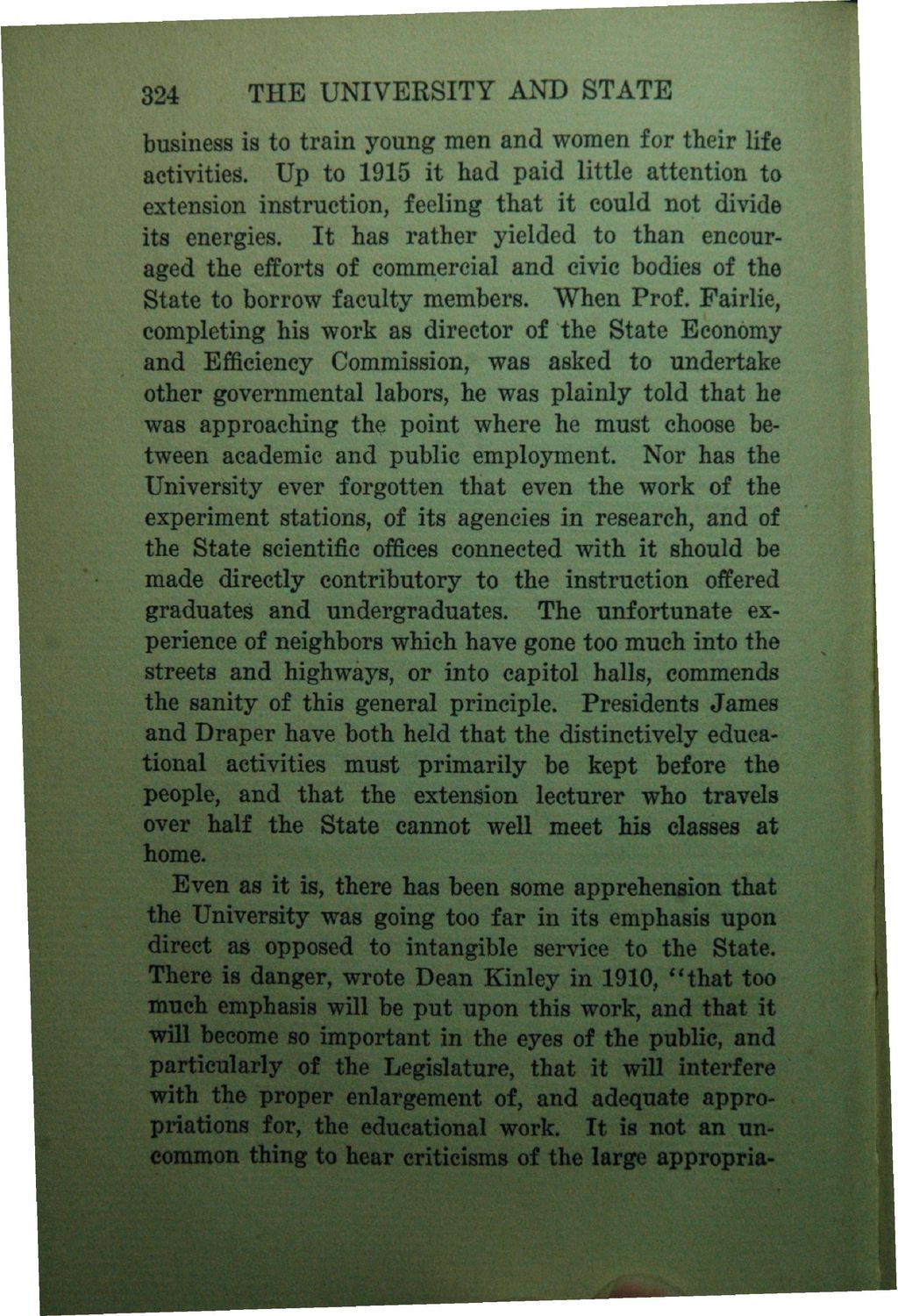| |
| |
Caption: Book - History of the University (Nevins)
This is a reduced-resolution page image for fast online browsing.

EXTRACTED TEXT FROM PAGE:
324 THE UNIVEESITY AND STATE business is to train young men and women for their life activities. Up to 1915 it had paid little attention to extension instruction, feeling that it could not divide its energies. It has rather yielded to than encouraged the efforts of commercial and civic bodies of the State to borrow faculty members. When Prof. Fairlie, completing his work as director of the State Economy and Efficiency Commission, was asked to undertake other governmental labors, he was plainly told that he was approaching the point where he must choose between academic and public employment. Nor has the University ever forgotten that even the work of the experiment stations, of its agencies in research, and of the State scientific offices connected with it should be made directly contributory to the instruction offered graduates and undergraduates. The unfortunate experience of neighbors which have gone too much into the streets and highways, or into capitol halls, commends the sanity of this general principle. Presidents James and Draper have both held that the distinctively educational activities must primarily be kept before the people, and that the extension lecturer who travels over half the State cannot well meet his classes at home. Even as it is, there has been some apprehension that the University was going too far in its emphasis upon direct as opposed to intangible service to the State. There is danger, wrote Dean Kinley in 1910, "that too much emphasis will be put upon this work, and that it will become so important in the eyes of the public, and particularly of the Legislature, that it will interfere with the proper enlargement of, and adequate appropriations for, the educational workjf It is not an uncommon thing to hear criticisms of the large appropria-
| |